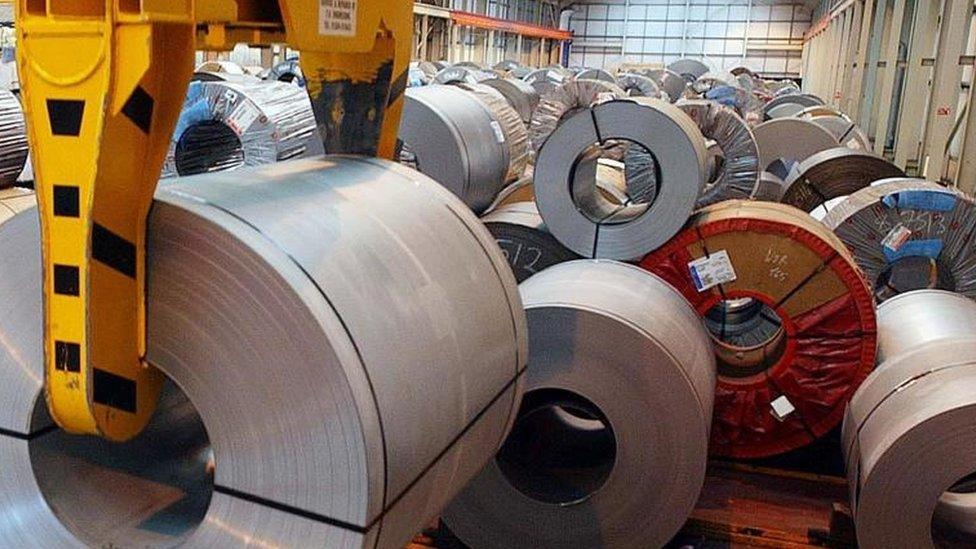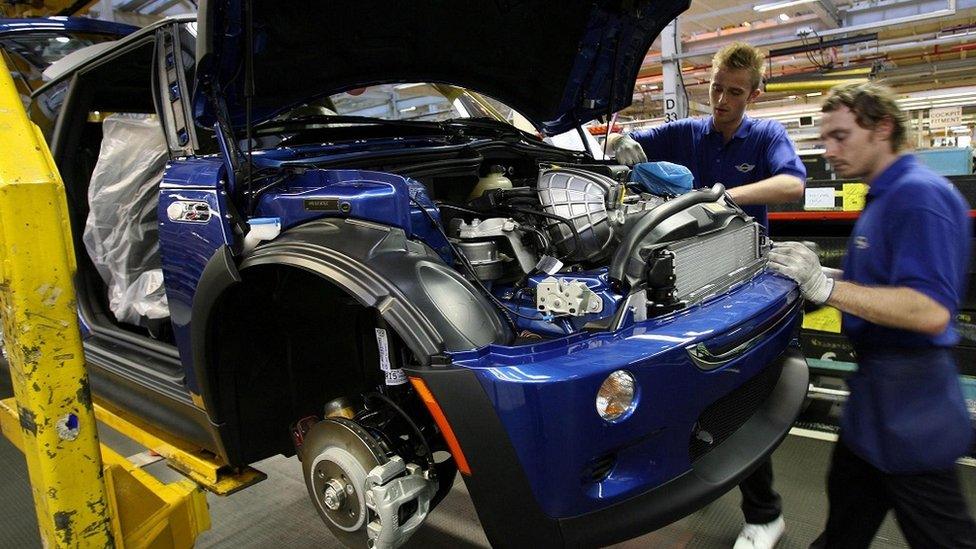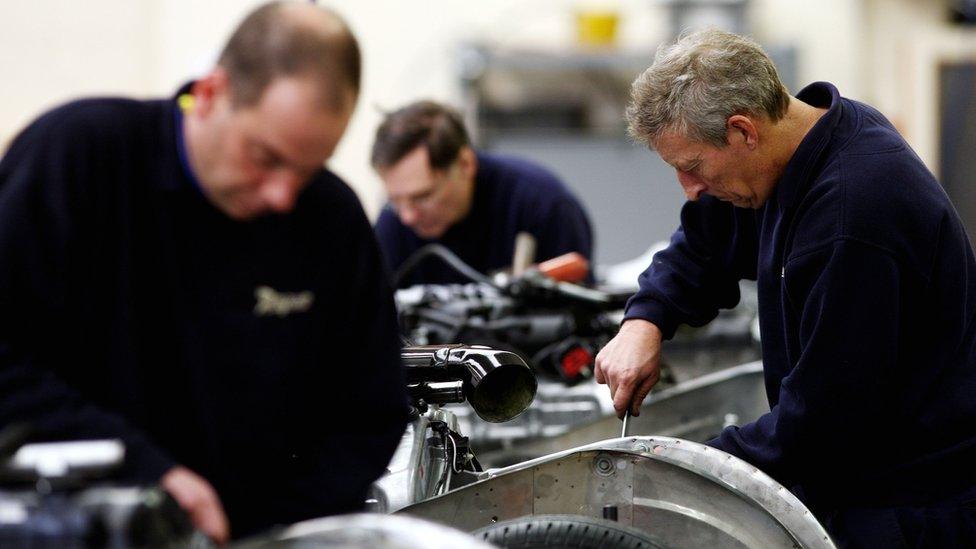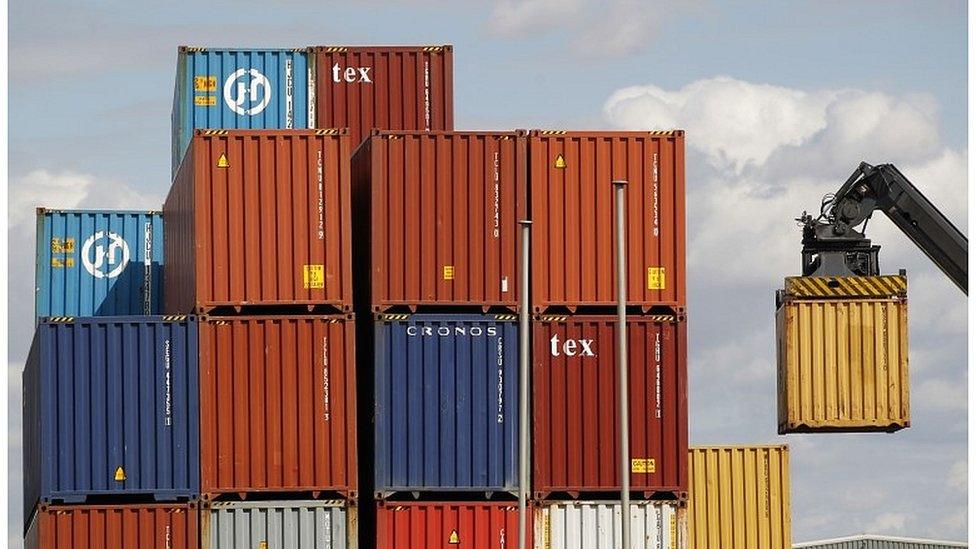MPs: UK government industrial strategy 'not long-term'
- Published

The government's industrial strategy shows little evidence of a long-term approach, say MPs.
They called the plans a continuation of existing policies rather than the step change that's needed.
The Prime Minister highlighted the strategy as part of her plan to create an economy that works for everyone.
The government insists that the recent industrial strategy green paper, external represents an ambitious long-term vision for the UK.
The report by the Business, Energy and Industrial Strategy select committee welcomed the government's "re-found commitment" to an industrial strategy.

It called Prime Minister Theresa May's rhetoric on the issue a "significant shift" from the approach of governments over the past 40 years.
"There's tantalising glimpses that there is something significant happening here," said committee chairman Iain Wright.
But he warned that the government's approach "appears to be evolutionary" and reflects a continuation of policies.
He warned that "business as usual" approach will not achieve the significant shift needed and that the industrial strategy will fall short in providing a framework for future success.
The strategy also provides little clarity on how regional rebalancing will work, according to the committee.
Sectoral deals
The green paper offered an "open door" challenge to industry to approach government for "sector deals".
But the report called on the government to step back from this.

"One of the things the committee felt quite strongly was that if you just go down a sectoral route you are going to miss the cracks in the middle" said Mr Wright, the MP for Hartlepool.
"And the cracks in the middle could be where the real economic advantages are".
He said the plan could lead to special pleading and that some key areas could miss out.
"What happens if something is really important to the UK economy and they don't come forward with a sectoral deal?"
Instead the committee wants the government to focus on "horizontal" policies that would benefit the wider economy like boosting skills, infrastructure and R&D.
It proposed a "missions" approach instead, targeting some of the key challenges ahead, from the ageing population to decarbonising the economy.
Government coordination
The report also stated that the Prime Minister "has not yet been able to harness the political will across government to drive forward her ambition".
It highlighted the recent housing white paper, which it claimed failed to spell out how the government and the construction industry would work together to tackle the housing shortage.

"The early evidence on things like the housing green paper are not positive in terms of collaboration across government," said Mr Wright.
"How are we going to avoid the silo-based approach that most government departments have, to really co-ordinate government activity in a single direction?"
Skills
The MPs said that proposals in the green paper on skills "leave much to be desired."
"After six months in development we expected more than a disappointing combination of re-announcements, continuations of existing policy, and vague aspirations," the report said.
The committee warned that businesses will need to continue to bring in skilled workers from abroad after Britain has left the European Union.
"In the context of negotiations over free movement as part of withdrawal from the EU, government must ensure that businesses continue to be able to access the skills they need," it said.
The department for Business, Energy and Industrial Strategy said that the recent green paper is the beginning of an open dialogue to develop the strategy.
In a statement it said: "Our modern industrial strategy represents an ambitious long-term vision for the UK that will build on our strengths as a country and deliver a high-skilled economy for the years ahead".
It added that it would consider the findings of the report carefully.
- Published2 March 2017

- Published28 February 2017

- Published27 February 2017
